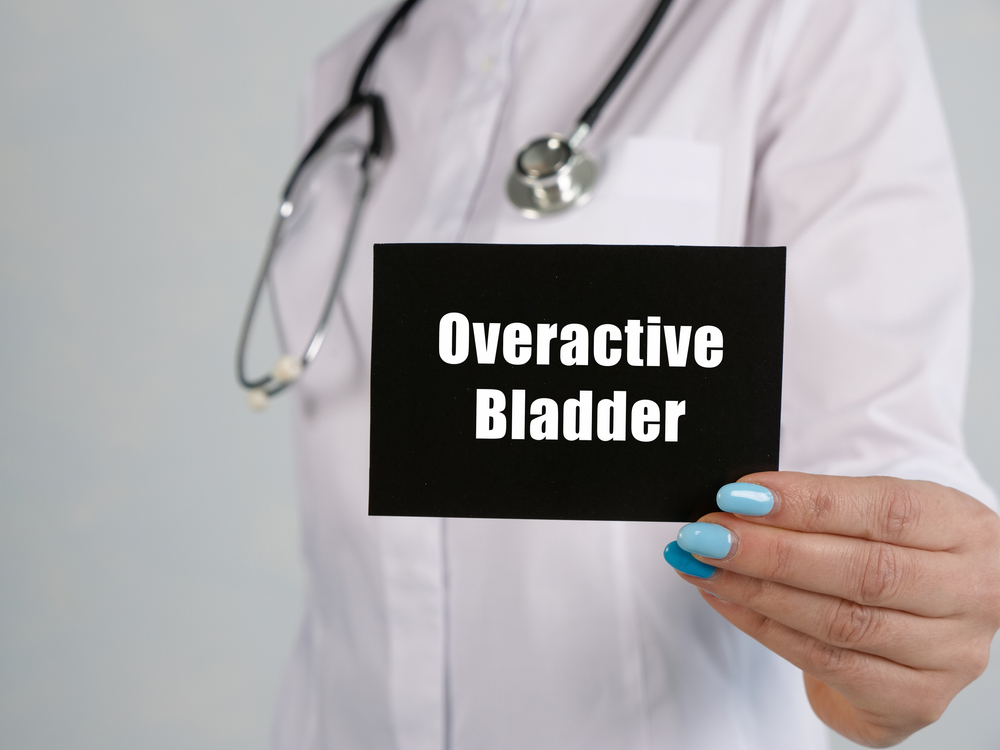- Have you ever felt the sudden, uncontrollable urge to urinate?
- Do you find yourself in the restroom more frequently than you’d imagine?
- Do you experience a few leaks and wake up multiple times in the middle of the night to pee?
Chances are you might have an overactive bladder (OAB)
An overactive bladder is when the muscles of the bladder start to contract involuntarily, even when the amount of urine in the bladder is insignificant. This leads to frequent and sudden urges to urinate.
An overactive bladder is the most common among older adults, but it can affect anyone- men, women, young or old. People with overactive bladders often find this condition frustrating and even find their quality of life deteriorating because of it. Luckily, there are a number of treatment options to relieve the symptoms of an overactive bladder. While there isn’t a cure for OAB, you can control and manage it without it disrupting your life.
Normal bladder habits —
A healthy bladder holds around 300 to 400 ml of urine during the day. It can hold more urine at night before you feel the need to empty it.
It is normal to empty your bladder four to six times throughout the day, to empty your bladder before you go to sleep, to empty your bladder once in the middle of the night and to empty your bladder when you wake up.
If you have an overactive bladder certain foods and drinks can irritate your bladder or urinary tract. It’s best to avoid these foods to help control involuntary urination.
Simple lifestyle and dietary changes can improve your bladder control and enhance your response to medication.
Read on to know what foods to avoid if you have an overactive bladder —
- Carbonated beverages- fizzy drinks like soda, sparkling water, champagne, energy drinks or sports drinks should be kept at a distance. The carbonation and caffeine in these drinks can irritate a sensitive bladder and even exacerbate the symptoms of an overactive bladder.
- Caffeine- The two main caffeinated drinks we love are tea and coffee. Unfortunately, if you have an overactive bladder or suspect OAB symptoms it’s best to steer clear of these beverages. Drinking too much caffeine increases bladder activity and causes higher urgency and frequency of urination. Reducing or eliminating caffeine from your diet or switching to decaffeinated options can decrease OAB symptoms. The culprit in coffee and tea is caffeine.
- Alcohol- Beer, wine and hard liquor are a big NO NO when it comes to an overactive bladder. Alcohol not only can disrupt the signals to your brain that make you aware of your bladder flow but also irritates and aggravates the symptoms of an overactive bladder.
- Citrus fruits- Just like tomatoes, citrus fruits contain high amounts of citric acid. This acid can worsen bladder control and OAB symptoms. Watch out for these citrus fruits (whole and in the form of juice)- oranges, pineapple, sweet limes, lemons, kiwi, and limes. Fruit is very healthy and should definitely be part of your diet, just make sure to opt for less acidic fruits like apples, berries and bananas.
- Cranberries- A lot of us believe that cranberry juice can relieve urinary tract infection symptoms but sorry to break it to you- cranberries are acidic. Cranberries and cranberry juice can irritate your bladder and cause incontinence. You might be tempted to try cranberry juice for relief, but it may worsen your symptoms. So my advice to you- stay away from cranberries.
- Tomatoes and its products- A staple in Indian cooking, tomatoes are a very acidic food. The acid in tomatoes can irritate the bladder and intensify the symptoms of an overactive bladder. Try to avoid or limit your intake of tomatoes and its products like ketchup, tomato paste, juice, spaghetti sauce, and salsa.
- Chocolate- AH chocolate! Everyone’s best friend… except your bladder. Chocolate tends to have trace amounts of caffeine and it contains milk, both of which can provoke the overactive bladder beast. If you really need a piece of chocolate and just can’t think of anything else, opt for white chocolate, which usually doesn’t have caffeine.
- Artificial sweeteners- Both natural and artificial sweeteners can trigger overactive bladder symptoms. If your symptoms are really bad, you might have to cut out sugar and sweeteners to get things under control. In most cases, you might not have to cut out sugar altogether, but it is wise to experiment and see if your symptoms lessen when you limit sweets in your diet. Whether you choose Aspartame, Sucralose, Saccharin or plain old sugar, the effects are the same. These sweeteners can worsen inflammation within the urinary system.
- Raw onions- Typically, people with an overactive bladder are most affected by raw onions, so try cooking them before eating. Switching to a milder onion-like shallot might be a good idea too. Like spicy and acidic foods, onions can cause bladder problems and increase the urge to urinate.
- Spicy food- The same food that makes your lips burn and eyes water can make your bladder leak as well. Be extra cautious of spicy foods if you have OAB symptoms. Spicy foods inflame the lining of your bladder and rattle overactive bladder symptoms making it harder to control.
- MSG- Monosodium glutamate or MSG, is a flavour enhancer and can be found in a lot of Asian and spicy food. It is considered to be an additive that irritates the bladder. If you are MSG-sensitive, be sure to read labels and ask for MSG free food at Asian restaurants.
- Processed foods- Artificial flavours, preservatives and additives aggravate the bladder and magnify the symptoms of an overactive bladder. Read labels to try to avoid processed foods as much as possible. A healthy and well balanced diet especially if you suffer from an overactive bladder should include natural and fresh foods.
Some other foods to avoid if you have an overactive bladder
- Brewer’s Yeast
- Milk/milk products
- Honey
- Medicines with caffeine
- Corn syrup
- Soy sauce
- Strawberries
- Vinegar
Conclusion —
People living with an overactive bladder can often find relief by adjusting their diet and making lifestyle changes. Although there isn’t a cure for OAB, most people can alleviate their symptoms with these simple alterations. Eliminating irritating foods doesn’t have to be an all-or-nothing approach. You can tolerate certain foods in small quantities or when eaten occasionally. Do not be rigid and most importantly- listen to your body and bladder.
Disclaimer: This article contains general information about health issues and is not advice. For health advice, consult a medical professional.




